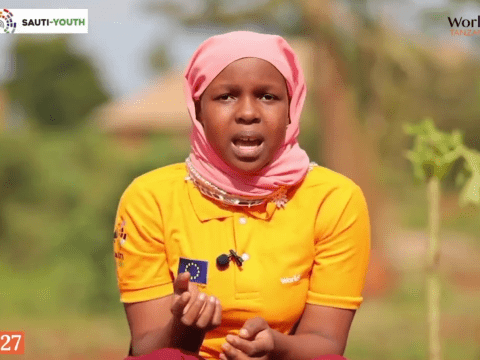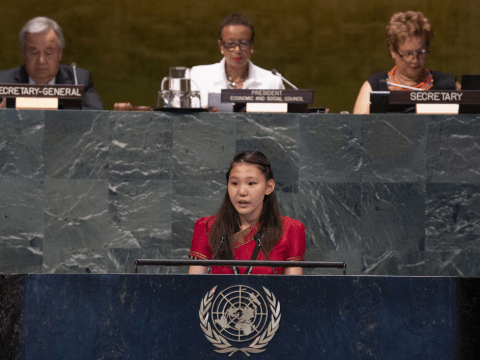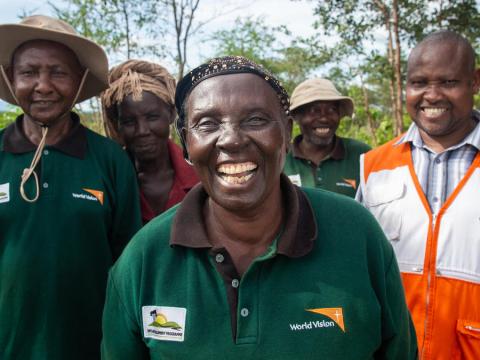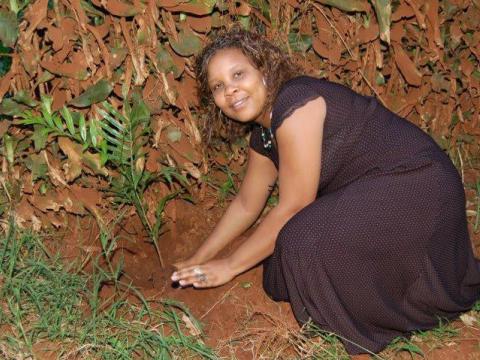
Tanzanian child advocate is equipped and ready for COP27
Shukrani Dickson writes that a Tanzanian youth has been invited to speak to COP27 leaders thanks to a World Vision programme and an AU/EU youth project, which both work to build children up as advocates.
Growing up in East Africa, Shania, age 15, knows first-hand the effects of climate change. In her home country of Tanzania, where more than 80 percent of population depend on agriculture for their income, she and her community have raised the alarm of what they need to protect their livelihoods, conserve their environment, and allow children to live their lives in all its fullness.
Deforestation, a lack of water are just two issues that are threatening her way of life and her future, and so, at COP27 in Sharm El-Sheikh, Shania will be raising her voice to advocate for ambitious climate action at the first Children and Youth Pavilion at a COP meeting. Shania was chosen to be a speaker at the President’s event as part of Youth and Future Generations Day on November 10.
It's a potentially intimidating moment for this teenager, but advocacy skills were learned as part of her involvement with the SAUTI-Youth Project and her school environment club. In Swahili, 'sauti' means “voice” and the project, supported by the European Union as part of the AU-EU Youth Initiative, help to raise the confidence of youth to speak on behalf of their communities and themselves.
By using World Vision's Citizen Voice and Action (CVA) approach, children and young people involved in the SAUTI- Youth program in Africa and Europe learn to track their local governments’ climate action pledges. Children and young people are also trained in monitoring the commitments of their local governments on climate change and engage in dialogue to develop creative solutions to address global issues from a local perspective.
“We started the environmental club because our school had no shade trees, and the land was dry due to the over-cutting of trees for charcoal and other unsustainable land uses,” said Shania. Through the SAUTI – Youth program, she has learned to monitor policy and environmental protection law in Tanzania, and to engage her fellow students in advocacy. The SAUTI-Youth group are looking to expand their membership so more children and young people can plan more trees and spread their knowledge around climate change causes and mitigation with their communities.
Shania also participates in income producing projects such as in planting fruit and shade trees, and to expand drip irrigation systems to conserve water. This is vital as, according to UNDP, recent severe droughts in Tanzania have had consequences on food production and water scarcity. It is also important because otherwise, according to Shania, women and young girls have to walk at night to get water--a dangerous enterprise.
"A girl like me, when you go to find water at night...the girl doesn't have any source of light or anyone to guide them," she explained. "And at night there are harmful and dangerous animals there, like snakes, lions, hyenas."
Children everywhere are particularly vulnerable to the consequences of climate change, yet they barely contribute to greenhouse gas emissions. The climate crisis is a child rights issue, and so it is vital that more young people like Shania get the chance to tell decision-makers about what they face, and ask that more is done to save our planet.
To learn more about what World Vision and young people are doing at COP27 click here
Shukrani J. Dickson, the World Vision's project coordinator for SAUTI project in Tanzania


